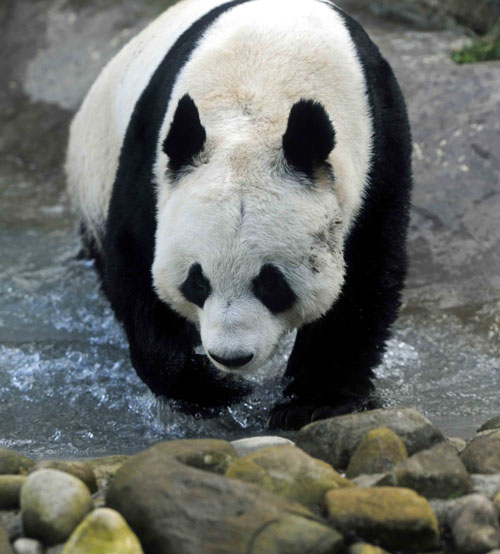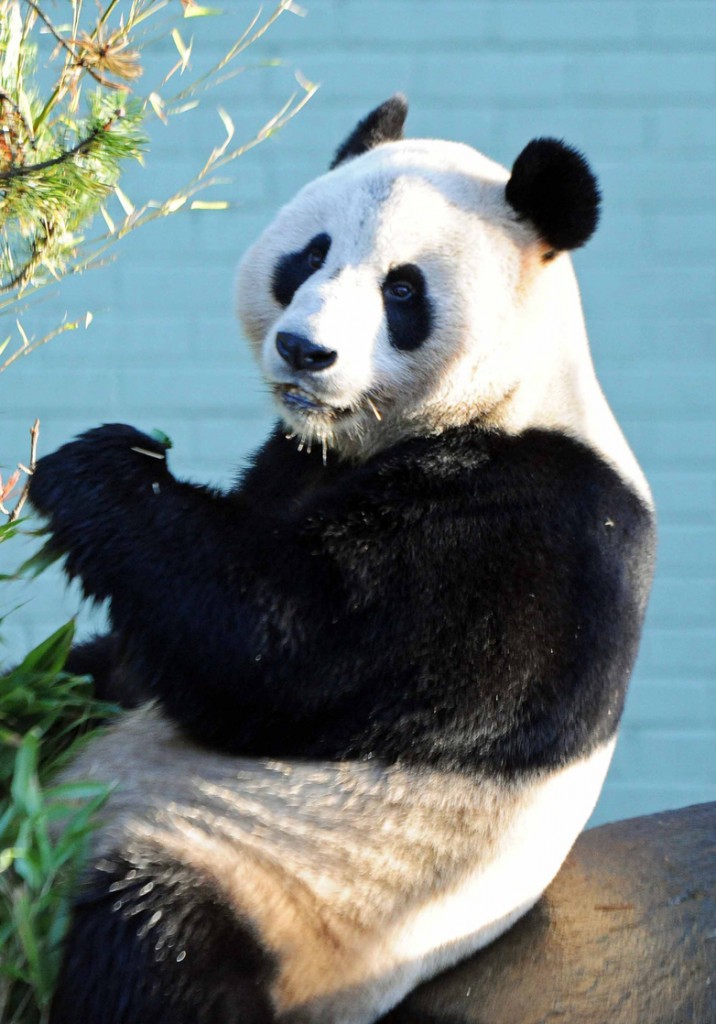HE German scientist who artificially inseminated Edinburgh panda Tian Tian has declared August 31 as the day she is due to deliver.
Dr Frank Goeritz said the latest hormone test pointed to the last day of the month – a Sunday – as P-Day – when Edinburgh Zoo is most likely to celebrate the arrival of a panda cub.
Dr Goeritz confirmed that although Tian Tian was definitely pregnant there was a lot that could still go wrong.
The Berlin-based expert also revealed that male panda Yang Guang had proved himself something of a stud.
He produced a sample of such quality and quantity that zoo chiefs were able to freeze the surplus for future use.
Dr Goeritz said: “The calculated birth is 31st of August, estimated from the latest test results.
“We measure the hormones and specific proteins, the pgfm, which is the pregnancy-maintaining hormone that you measure in the urine.
“That indicates that the pregnancy is still there and then we match that with a timetable.”
Tian Tian failed to mate with Yang Guang earlier this year, for the third year in a row, and was artificially inseminated instead.
Two different male panda samples were used last year in a bid to produce the first panda cub in the UK ever.
However this year, she was artificially inseminated on April 13, using exclusively samples from Yang Guang.
“Just to be on the safe side if you have two males with good semen it improves the chances of a pregnancy,” explained Dr Goertiz.
“She did conceive last year but didn’t maintain the pregnancy so it was decided to exclusively use fresh semen.
“The semen was excellent and there is no reason why he can’t produce babies.
“It was very good in terms of quality and quantity, it had a 90% mortility rate, which means there was high number of active sperm – they’re swimmers.
“We got more semen than we needed so the rest was preserved.”
While giant pandas are famously reluctant to mate, both in captivity and in the wild, and pregnancies often fail even if they do, Tian Tian has had cubs in the past in China.
Dr Frank believes that the pair haven’t mated naturally for a number of reasons.
He explained that in the wild, female pandas will choose their mate and in captivity there is no choice so the female can instantly reject the male.
Also the male panda, having been raised in captivity may not have the experience, be able to read the signs or the physical strength to mate successfully.
“There is a difference between being able to produce a specimen and being able to mate,” he added.
“The males may not be experienced, or be strong enough to actually mate.
“The climate is one factor but pandas in the wild are used to cold wet weather, much like that of Scotland.
“It is normal weather that they are used too.”
The pandas arrived on loan from China in December 2011 following five years of talks between officials and became the first giant pandas to live in the UK for 17 years.
The animals, both aged ten, will remain at Edinburgh Zoo for a decade. Under the terms of the agreement any cubs will return to China at the age of two, the age at which they would normally leave their mother in the wild.
Dr Frank Goeritz is the senior scientist of reproduction management at the Leibniz Institute for Zoo and Wildlife Research in Berlin.
He has previously worked with pandas in Berlin, Vienna and Memphis before lending his expertise to Edinburgh Zoo.



